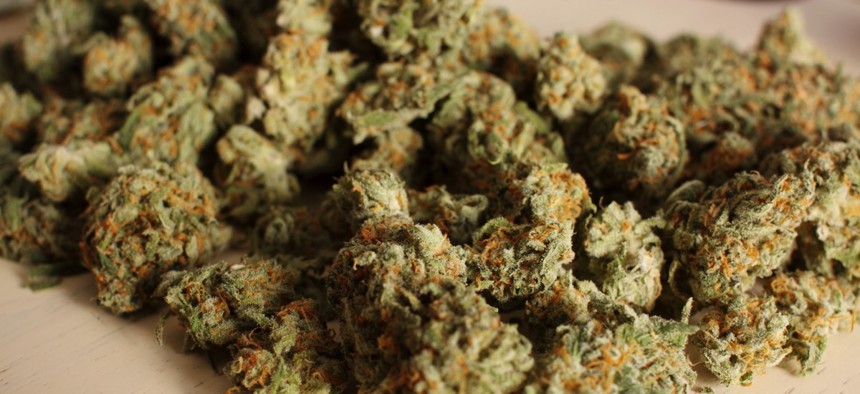How Colorado Is Trying to Convince Marijuana Enthusiasts Not to Drive Stoned

Peter Kim / Shutterstock.com

Connecting state and local government leaders
Among the state’s 420-related tactics: A special car that’s filled with smoke.
Don’t drive high. That’s the message that the Colorado Department of Transportation will try to convey this weekend with a smoke-filled car, an arcade game, and other pot-themed measures, as marijuana enthusiasts take part in festivities marking April 20, or “420.”
For decades, pot smokers have seen April 20 as a time to celebrate marijuana and cannabis culture. With Colorado’s legalized recreational marijuana industry in its second year, there is no shortage of 420 events happening this month. These include a sushi and joint rolling class , “ puff, pass and paint ” sessions, and the so-called Cannabis Cup , a trade show scheduled for April 18-20 in Denver, which is expected to draw thousands of attendees.
Colorado’s DOT is looking to this year’s 420 events as an opportunity to spread their message that people should not get behind the wheel after consuming pot.

“New this year are these community tactics that we’re using,” said Sam Cole, safety communications manager for the department. “They’re very targeted.”
The haze-filled car will appear in Denver this weekend and in Boulder and Fort Collins over the summer, according to a DOT press release. It is meant to look like people are smoking pot inside of it. But a sign on the car’s interior says: “Drive High, Get a DUI.”

The department will also station an arcade game at seven pot dispensaries around the state, in towns including Aurora, Denver, Durango and Wheat Ridge. Designed to look like a classic racing video game, “End Game Arcade” instead confronts players with a message telling them driving high is illegal, before presenting them with different gaming options.

The department’s previous campaigns to combat high driving have included television advertisements. In the advertisements, people who appear to be stoned do things like repeatedly trying to light a barbecue grill that is not hooked up to a propane tank. “Grilling high is now legal,” text at the end of the commercial says. “Driving to get the propane you forgot isn’t.”
The commercials are re-airing this month in Colorado. The department’s press release says the advertisements have been effective at reaching people in communities along the Front Range, which includes cities like Boulder and Denver.
But Cole notes that initiatives like the car and video game are less expensive than television commercials and that they tend to get press coverage, as well as social media attention.
“They’re very visual ways to get our message across,” he said.
Among the other efforts the transportation agency will undertake this weekend: handing out snacks labeled with marijuana safety messages at the Cannabis Cup and partnering with an app-based car service on a trivia contest that gives participants a chance to win free rides.
Last year, Colorado recorded 481 vehicle crash fatalities, DOT statistics show. Fifty four drivers involved in the incidents that led to the deaths tested positive for cannabis. Ten of the 54 also tested positive for other drugs.
From 2003 to 2013, the number of fatal wrecks in the state that involved drivers who tested positive for marijuana ranged from 20 to 52, with an annual average of 36.5.
Additional images courtesy Colorado Department of Transportation

NEXT STORY: With a Police Body Camera Redaction Solution in Sight in Seattle, D.C. Mayor Moves to Block Video Access





